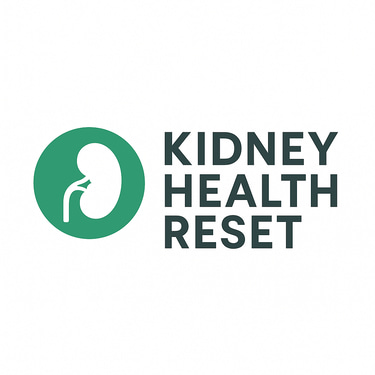Understanding Protein and Kidney Health: What You Need to Know
Blog post description.
9/6/20252 min read


Protein is an essential part of any healthy diet. But if you're living with chronic kidney disease (CKD) or trying to protect your kidneys, protein intake becomes a lot more nuanced. In this comprehensive guide, we break down the complex relationship between protein and kidney health, what to eat, what to avoid, and how to find the right balance for your body.
Looking for a simple, step-by-step healing plan? The Kidney Disease Breakthrough Guide can help you take back control naturally.
Why Protein Matters for Kidney Health
Your kidneys play a central role in filtering waste from protein metabolism. While protein is vital for muscle repair and immune function, too much of it can place stress on already-compromised kidneys.
However, not all protein is harmful. The key lies in quality, quantity, and individual health status.
High-Protein Diets and Kidney Risk
High-protein diets like keto, paleo, or Atkins have surged in popularity. But they can pose risks for people with CKD or those predisposed to kidney problems.
Excess protein:
Increases waste buildup (urea, nitrogen)
Raises glomerular pressure in the kidneys
Can lead to faster decline in kidney function in CKD stages 3–5
If you suspect kidney issues, always consult a medical professional before adopting high-protein eating plans.
The Right Amount of Protein
General guidelines (for people with CKD under medical supervision):
0.6 to 0.8 grams of protein per kg of body weight per day
Example: A 70kg person may need just 42g–56g daily
Too little protein can lead to muscle loss, while too much may accelerate kidney damage.
The Kidney Disease Breakthrough Guide includes an easy-to-follow protein calculator, meal suggestions, and daily tracker.
Best Protein Sources for Kidney Health
Your body needs protein, but smarter choices can reduce the burden on your kidneys.
Kidney-Friendly Proteins:
Egg whites (high-quality, low phosphorus)
Skinless chicken or turkey (moderate portions)
Plant-based sources like tofu, beans (carefully measured)
White fish and certain shellfish
Low-fat Greek yogurt (if phosphorus is not restricted)
Proteins to Limit or Avoid:
Red meat (high in saturated fat and phosphorus)
Processed meats (bacon, sausage, deli meat)
Full-fat dairy products
Plant vs Animal Protein: Which is Better?
Recent studies suggest plant-based proteins may be easier on the kidneys due to:
Lower phosphorus bioavailability
Alkaline load reduction
Better blood pressure control
A well-balanced plant-based diet may even slow CKD progression. If you're unsure how to start, the Kidney Disease Breakthrough Guide provides CKD-friendly vegetarian meal plans.
How to Track Protein Intake
Read Labels — Most packaged foods list grams of protein per serving.
Use a Food Journal — Apps like MyFitnessPal help you log your daily protein.
Work with a Dietitian — Especially if you’re at CKD stage 3 or higher.
Our recommended resource includes printable tools to stay on track: See what's inside the plan.
Myths About Protein and Kidney Health
Myth 1: You Must Eliminate All Protein
❌ Wrong. You just need to optimize your intake, not eliminate it.
Myth 2: Plant Protein Isn’t Complete
✅ Not true. Combining legumes, whole grains, and seeds gives you full amino acid profiles.
Myth 3: More Protein = Stronger Body
❌ Not always. Excess protein leads to higher urea levels and acid load, which strain the kidneys.
Sample Kidney-Conscious Day
Breakfast:
Egg white veggie omelet + 1 slice low-sodium toast
Lunch:
Grilled tofu stir-fry with red bell pepper, broccoli, olive oil
Dinner:
Baked white fish, steamed cauliflower, brown rice
Snack:
Unsweetened Greek yogurt or 1 small apple with almond butter
Final Thoughts
Protein is crucial — but balance is everything. If you or someone you love is managing CKD, learning to balance protein intake can significantly slow disease progression and reduce symptoms like fatigue or fluid retention.
✅ Want a fully guided, natural approach?
Download the Kidney Disease Breakthrough Guide here and start your healing journey today.
Every bite you take is either helping or hurting your kidneys. Make it count.
